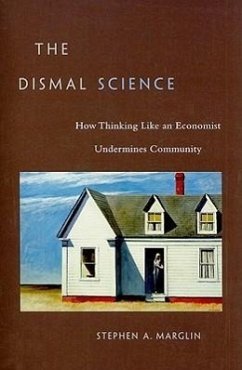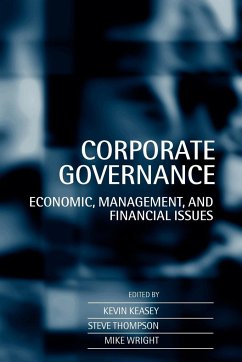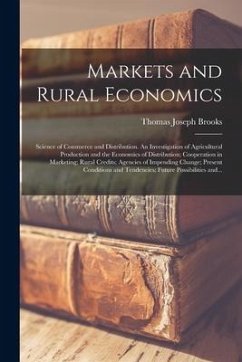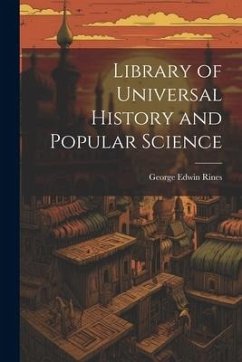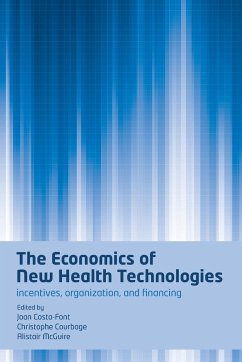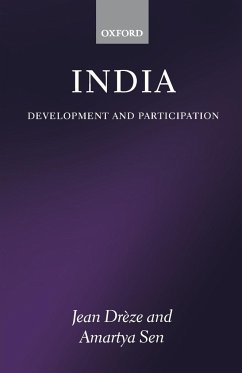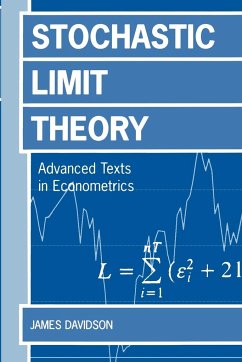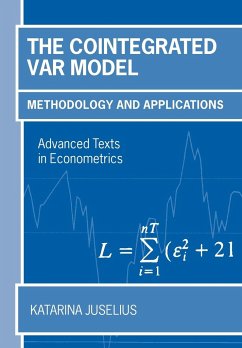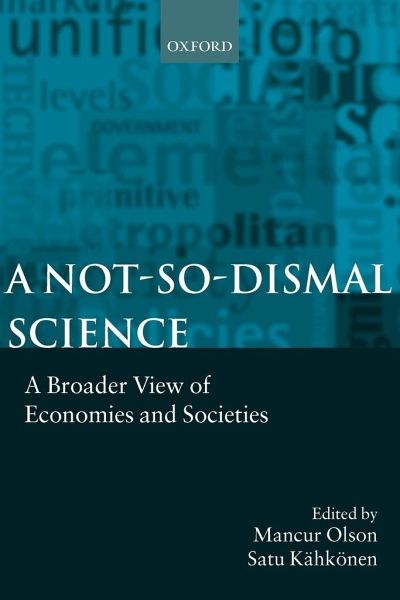
A Not-So-Dismal Science
A Broader View of Economies and Societies
Herausgeber: Olson, Mancur Jr.; Kahkonen, Satu; Kahkohnen, Satu

PAYBACK Punkte
33 °P sammeln!
Modern economics is like a metropolitan area. Economists' ideas about business and markets are like the magnificent buildings of the city centre. Yet most growth and prosperity is in the suburbs - lately many of economics' greatest successes have been outside the traditional boundaries of the discipline. In the study of law, economic ideas have been the intellectual focus and 'law and economics' has become a major field. In the study of politics, economists and political scientists using economics-type methods are uniquely influential. In sociology and history, economics has had a smaller but growing influence through 'rational choice sociology' and 'cliometrics'. The influence of the economists type thinking in other social sciences is bringing about a theoretical integration of all the social sciences under one overarching paradigm. The chapters of the book illustrate the intellectual advances that account for this unified view of economies and societies.
Many of economics' greatest successes have been outside the traditional boundaries of the discipline. Economic ideas have been the intellectual focus in the study of law, while in the study of politics, economists and political scientists using economics-type methods are uniquely influential. In sociology and history, economics has had a smaller but growing influence through "rational choice sociology" and "cliometrics." This book shows that, in calling economics the "dismal science," Thomas Carlyle was profoundly wrong. Economic ideas have illuminated behavior in all of the social sciences in addition to the economists' traditional domain. The broadening of economics and the use of economists' methods by social scientists in other fields is leading to a unified and positive view of economies and societies.



